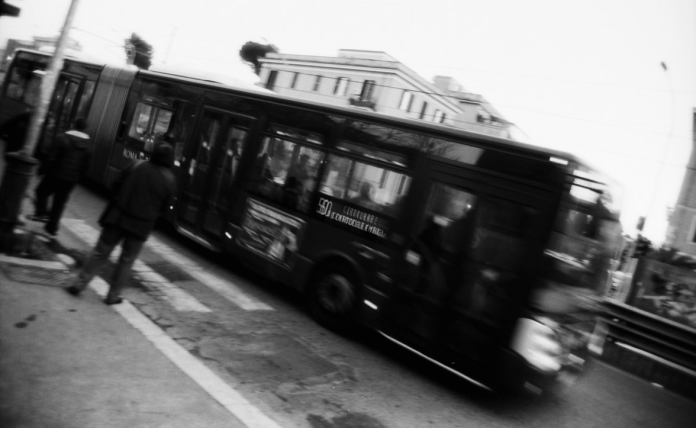This one is a companion piece of sorts to one below.
—
He swaggered onboard with the lost hope of a man who wished he ruled the world. In delusion there is comfort; maybe he did and still would, in the final place where such things matter, the secret recesses of your mind and that of your friends.
I was grateful for his familiarity on this 5/21, where I feel like a stranger in a strange land: a crush of haggard commuters now, the affluent, overworked, and exhausted set, not interested in talking and perhaps understandably so. I’m no judge. People have different solutions for the parts of their lives they don’t like. I’m used to a different type of crowd, though. The Seattle I describe in an earlier post isn’t the Seattle of most of these route 5 passengers tonight.
But this man, this swaggering dark-clad man with the wild eyes… this man spoke my language.
You may not know that crack cocaine often has no noticeable odor. He smokes it in the back of buses sometimes, and you can see the full whites of his distended irises from all the way up here, where I’m sitting, through the rear-view mirror. That sack-boned gone and dirty need, a speedometer starting at shame and going the other way… What is it about reducing yourself from a human mind to a mere lonely chemical? I see the pipe and I see irreversible brain damage. He sees it and sees release, freedom, comfort, all the things he can’t find in easy reach.
But my job is not to solve the big problems. That’s on someone else. I see too many. I’m not sitting on the piles of capital and infrastructure opportunities that would help. I’m doing what the power players can’t do: I can be their friend. I’m the authority figure who has no agenda. Let me help you feel acknowledged, free, comforted.
I tell myself I’m okay with all of what I see. It looks like I don’t care. But that’s where I need to sit in order to offer what I have. You’re Abdulahi, drunk at 8 AM, and all the cops and aid workers in Seattle know you and they’re rolling their eyes. Everyone else is crossing the street to get away from you, because you’re scaring people.
But I know your name, friend, and I lean in for a fistpound, as I did this morning in the line at CVS. Because you’re my people and you’ve been nice to me. I leave the solving of problems to more-equipped others. I stick with what I’m best at, and what they may not be able to do as easily: make you feel human.
One night I talked to him at the terminal, after the others had all left.
“Hey, my guy.”
“‘Sup.”
“Listen, you’re welcome to ride my bus again, but I gotta ask you one favor, which is to please, dude, we can’t be lightin’ up in here. Can’t be smokin’ out inside the bus with all these other people. I don’t mean no disrespect.”
“It’s cool, it’s cool, I won’t do it no more.”
“I know sometimes it’s hard, maybe you really want to, but just outta respect, I gotta ask you please.”
“I gotchoo, bro. I apologize.”
“Thanks, man.”
And he stopped. Two weeks later he got on again.
“Thank you for not smoking, my guy,” I quickly said.
“Ey!” Elastic toothy grin, making my heart soar with relief: “You remember!”
“I appreciate you!”
“You a cool bus driver!”
And that’s how it’s been since. “Ah be good, ah be good,” he’ll say when he slips on. And he is. It was in the breath of our histories (above and earlier, linked below*) that he saw me now, tonight.
“THE FIVE?” he exclaimed, in shock.
“I KNOW,” I replied, throwing my hands up in the air.
“Aintchoo sposed tuh be on the 7?”
“TOTALLY, MAN! It’s like, what am I doing here?”
“Ey. It’s good to see you.”
I can’t tell how he’s doing, if he’s better or worse tonight. But he engaged. He was kind. I no longer mind if people are unresponsive to me. But doesn’t it feel good when they do respond? I’m sure these plugged-in people have their strengths. Silence and interiority are virtues, not drawbacks.
But. He was the person on this bus who said hi to me. I was Abdulahi at CVS, and he reminded me that I belong, too.
And that counts for something.
—
*These sorts of things can come and go with the tides. Here he is doing worse, and better; incremental improvement is still improvement.
Nathan Vass is an artist, filmmaker, photographer, and author by day, and a Metro bus driver by night, where his community-building work has been showcased on TED, NPR, The Seattle Times, KING 5 and landed him a spot on Seattle Magazine’s 2018 list of the 35 Most Influential People in Seattle. He has shown in over forty photography shows is also the director of nine films, six of which have shown at festivals, and one of which premiered at Henry Art Gallery. His book, The Lines That Make Us, is a Seattle bestseller and 2019 WA State Book Awards finalist.



